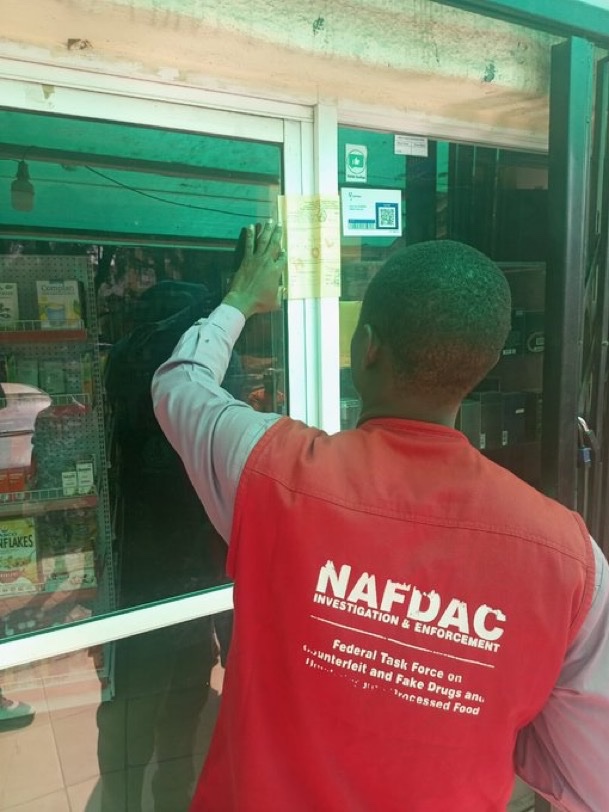In recent years, the demand for organic and natural products in Nigeria has skyrocketed. Health-conscious consumers are turning to organic foods, herbal supplements, and chemical-free skincare, hoping to avoid the dangers of processed alternatives.
However, a disturbing trend has emerged fake “organic” products flooding the market.
From adulterated honey to counterfeit herbal medicines and falsely labeled skincare, unscrupulous businesses are cashing in on the organic craze by selling substandard or outright fake products.
This article exposes the dark side of Nigeria’s organic product industry, revealing how consumers are being deceived and what can be done to protect themselves.
The Rise of Organic Fraud in Nigeria
The global organic market is worth over $200 billion, and Nigeria is no exception to this booming trend.
With increasing awareness of diseases like cancer, diabetes, and hypertension, many Nigerians are willing to pay a premium for products labeled *”100% natural,” “chemical-free,” or “organic.”
Unfortunately, this demand has led to widespread fraud.
The absence of strict regulations and proper certification processes has made it easy for fake organic products to thrive.
Common Fake Organic Products in Nigeria
1. Adulterated Honey
– Many brands mix pure honey with sugar syrup, corn syrup, or even water, yet label it as “raw” or “unprocessed.”
2. Fake Herbal Supplements
– Some “natural” immune boosters and weight-loss teas contain undeclared pharmaceuticals or steroids.
3. Counterfeit Skincare Products
– Brands claiming to be “organic” or “chemical-free” often contain harmful parabens, sulfates, and artificial fragrances.
4. Diluted Essential Oils
– Pure oils like lavender or tea tree are often mixed with cheaper carrier oils but sold at premium prices.
5. Fake Organic Grains & Spices
– Some sellers spray pesticides on produce but still market them as “organic.”
How Fake Organic Products End Up in the Market
1. Lack of Proper Certification
In Nigeria, there is no strict enforcement of organic certification.
Unlike in Europe or the U.S., where products must meet rigorous standards, local sellers can easily slap an “organic” label on anything without verification.
2. Cheap Imports & Dubious Suppliers
Many “organic” products are imported from countries with lax regulations.
Some suppliers repackage conventional products as organic to increase profits.
3. Fake Online Reviews & Influencer Marketing
Some brands pay influencers to promote their products as “genuine” and “all-natural,” even when they contain harmful additives.
Fake five-star reviews on e-commerce platforms further deceive buyers.
4. Poor Consumer Awareness
Many Nigerians assume that if a product is expensive or sold in fancy packaging, it must be authentic.
Scammers exploit this trust. The Dangers of Fake Organic Products
Consuming or using counterfeit organic products can have serious health consequences:
•Adulterated honey can spike blood sugar levels, defeating the purpose of choosing a healthier sweetener.
• Fake herbal supplements may contain unregulated drugs, leading to liver damage or heart complications.
•Counterfeit skincare products can cause severe allergies, acne, or long-term skin damage.
•Pesticide-laced “organic” foods expose consumers to toxins linked to cancer and hormonal disruptions.
A Lagos-based dermatologist, Dr. Adaobi Nwosu , shared: ”
I’ve treated patients with severe rashes and burns from so-called organic creams that turned out to contain bleaching agents and steroids.
People think natural means safe, but that’s not always the case.”
How to Spot Fake Organic Products
Since regulators are slow to act, consumers must take extra steps to verify authenticity.
Here’s how:
1. Check for Certification Labels
Legitimate organic products often have certifications like:
– NAFDAC (for locally regulated products)
– USDA Organic (for U.S. imports)
– EU Organic Logo (for European products)
If a product has no certification, be skeptical.
2. Research the Brand
– Look up the company’s website and manufacturing process.
– Check for customer complaints on forums like Nairaland or Reddit.
3. Conduct Simple Home Tests
– Honey Test:
Pure honey doesn’t dissolve quickly in water and doesn’t drip easily.
– Essential Oil Test:
Real oils leave no greasy residue on paper.
– Skin Patch Test:
Apply a small amount of a new product to your wrist and wait 24 hours for reactions.
4. Buy from Trusted Retailers
Stick to reputable stores, pharmacies, or certified organic markets rather than random Instagram vendors.
What Can Be Done to Stop This Fraud?
1. Stronger Government Regulation
– NAFDAC & SON should enforce stricter penalties for false organic labeling.
– Standardized certification for local organic farmers and producers.
2. Consumer Awareness Campaigns
– NGOs and health organizations should educate Nigerians on how to identify genuine organic products.
– Social media influencers should verify products before endorsing them.
3. Support for Legitimate Organic Brands
– Consumers should patronize verified local organic brands with transparent sourcing.
– Farmers’ markets and organic cooperatives should be promoted as safer alternatives.
Conclusion:
Buyer Beware
The fake organic product crisis in Nigeria is a silent health emergency.
While the demand for cleaner, healthier alternatives is a positive trend, fraudsters are exploiting it for profit, putting lives at risk.
Until stricter regulations are in place, consumers must stay vigilant.
Always research before buying, demand transparency, and report suspicious products to **NAFDAC.**
Have you ever fallen victim to fake organic products?
Share your experience in the comments!

